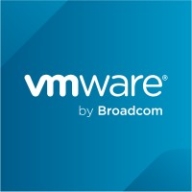

Spring Cloud Data Flow and Rivery compete in the data integration and workflow management space. Rivery has the upper hand due to its wide range of integrations, automation capabilities, and ease of deployment.
Features: Spring Cloud Data Flow offers seamless microservices orchestration, integration with Spring ecosystem tools, and customization flexibility. Rivery provides a no-code interface for rapid deployment, an extensive library of pre-built connectors, and competitive automation features.
Ease of Deployment and Customer Service: Spring Cloud Data Flow, being open-source, allows for in-depth customization but may require more setup time. Rivery offers an intuitive deployment model and responsive customer support, making it suitable for organizations with limited technical resources.
Pricing and ROI: Spring Cloud Data Flow has a lower initial setup cost due to its open-source nature, reducing long-term expenses for skilled teams. Rivery's pricing reflects its comprehensive features and ease of use, offering higher ROI for businesses prioritizing quick deployments and extensive data integration capabilities.
| Product | Market Share (%) |
|---|---|
| Spring Cloud Data Flow | 1.1% |
| Rivery | 0.6% |
| Other | 98.3% |
| Company Size | Count |
|---|---|
| Small Business | 3 |
| Midsize Enterprise | 1 |
| Large Enterprise | 5 |
Rivery is a serverless, SaaS DataOps platform that empowers companies of all sizes around the world to consolidate, orchestrate, and manage internal and external data sources with ease and efficiency.
By offering comprehensive data solutions and partnering with complementary technology providers, including Google, Snowflake, Tableau, and Looker, Rivery enables data-driven companies to build the perfect ecosystems for all their data processes.
Spring Cloud Data Flow is a toolkit for building data integration and real-time data processing pipelines.
Pipelines consist of Spring Boot apps, built using the Spring Cloud Stream or Spring Cloud Task microservice frameworks. This makes Spring Cloud Data Flow suitable for a range of data processing use cases, from import/export to event streaming and predictive analytics. Use Spring Cloud Data Flow to connect your Enterprise to the Internet of Anything—mobile devices, sensors, wearables, automobiles, and more.
We monitor all Data Integration reviews to prevent fraudulent reviews and keep review quality high. We do not post reviews by company employees or direct competitors. We validate each review for authenticity via cross-reference with LinkedIn, and personal follow-up with the reviewer when necessary.